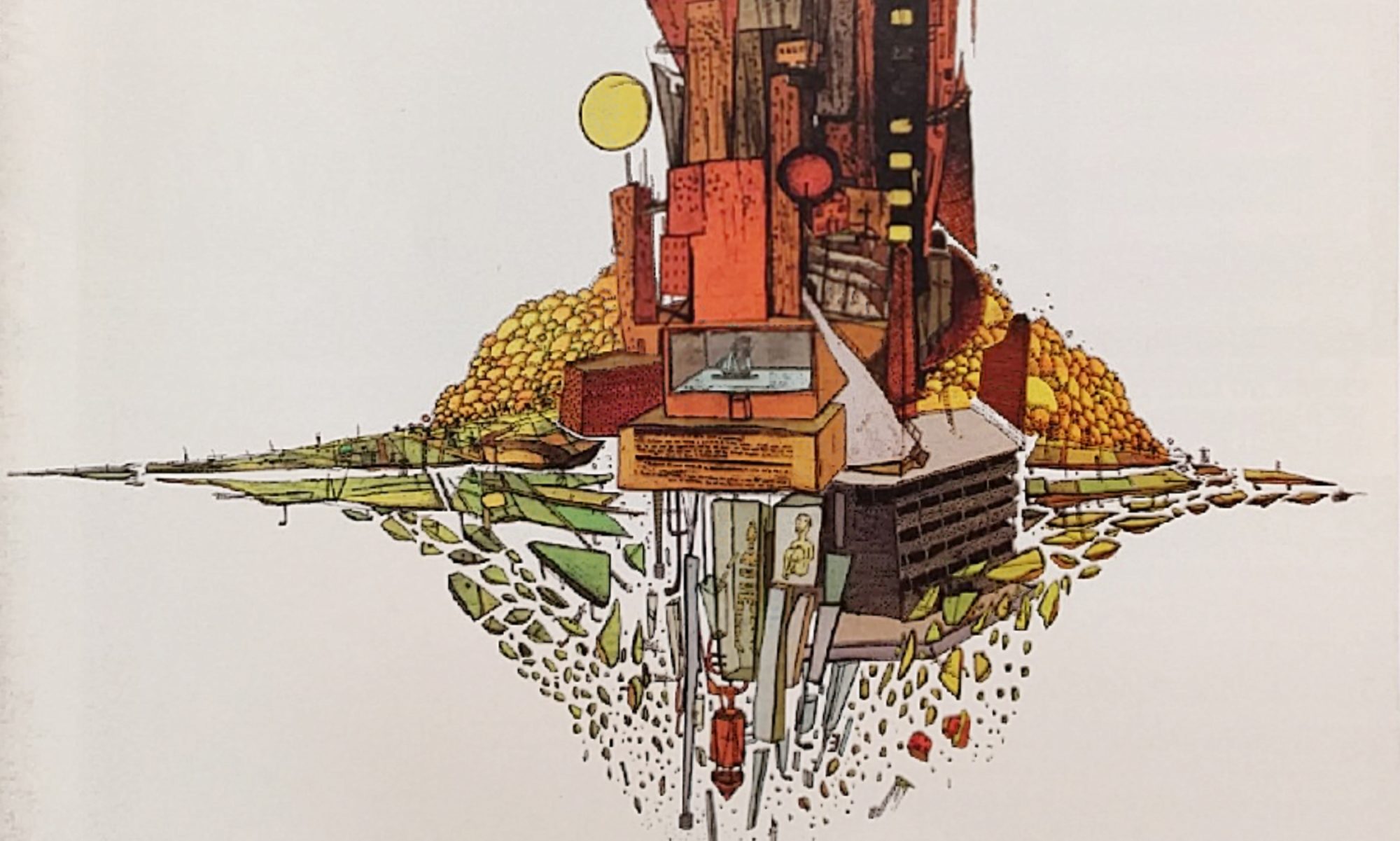
Photo of Nü Sensae by Taylor Burgess in Calgary, Alberta.
By Taylor Burgess
Bubbling out of Vancouver’s fertile and molting noise/punk/hardcore/etc. scene, Nü Sensae are one of loudest onslaughts which reaffirm doom and gloom exists in these optimistic times. Core duo Daniel Pitout and Andrea Lukic were joined late last year by guitarist Brody McKnight, former Mutator, and they all joined forces to make their new record, Sundowning, which is looming to drop on Suicide Squeeze records for August 7. (“I know,” Brody McKnight says, “it’s a big deal.”) Here’s a track from that album, and then after the jump there’s an interview from the back alley of the Ship and Anchor after their last show of Sled Island Festival.
Stylus: How many of the songs did you write together? When you were getting together, what kind of process was it? What headspace did you put yourselves in?
Brody McKnight: We just wanted to write songs that we liked playing live, just songs that were fun for us.
Stylus: What elements of a song make you want to play that song?
Andrea Lukic: Personally I like songs that build up. For a lot of our songs, we try to do that, in a minimal way, you know? They’re not like long jams or anything. There’s a little bit of momentum—a build or a progression of something.
Daniel Pitout: With this album—before it was like we would write songs throughout a long process of time, and then compile an album. For this one, we took months off. We wrote the album for something like six months. So we took time off from playing shows, which we had never done before, and we basically started from scratch. We were thinking up different types of songs that we wanted to have on it. So I think it has more of an album feel than our last album, because each song was specifically put on and placed for a different reason.
Stylus: What keeps you all going? What makes you do these crazy tours? What makes you record albums? Why do you keep going—just why?
BM: Well I’m on EI right now, so it’s pretty easy for me. That’s kinda it. I don’t have to take any time off work.
AL: There’s really no other way to see the states, because we make enough for gas at least. If you did a road trip it’d just be coming out of your pocket, and you probably wouldn’t hit all of these spots anyway.
BM: We have lots of friends around the states now. So it’s nice to see them.
DP: I think tours—it’s work, it’s not like you’re on vacation, but I think there’s nothing better than touring. It feels really magical. No matter what kind of a tour you do, whether you book it yourself and it’s lame and no one goes, it’s still a really magical feeling that you’re going around the country and getting paid to do something that’s really personal to you and people are into it. I used to think it’s a weird secret. Once you do it and you know how fun it is, and how easy it is—I mean everyone knows that know—you can just do it yourself. It feels like this weird secret that everyone knows about.
Stylus: Are you finding new people coming to your show, or is it like the same 15 people in every town? Do you think there are new people to be reached?
DP: It varies—depends on every city we play. There are some cities where it will be better every time, like, way more people or people that don’t seem like they’d be into us that are into us.
Stylus: What kind of city would that be?
DP: Bigger cities, Boston, New York. Actually, I feel that every time we play here, it gets—something is different or better. I think there’s always a show where someone says, “Oh, this is the first time I’ve seen you,” it’s not like the same people every time. When you play certain small towns in the states like…
AL: Bakersfield.
DP: Bakersfield, California, yeah, there’s only such an amount of kids that live there that are interested in anything alternative at all. But those are the best shows too, because then you’re going to play for this group of ten friends who you never see and they’re there every single time. So that’s also really cool.
Stylus: Brody, you’re relatively new to the band, so, what do you think the reach of Nu Sensae has been before you joining the band, and what you’ve seen afterwards too?
BM: I’ve heard just all positive stuff from people, like, more of a fuller sound.
Stylus: If you could estimate, or quantify—how many people know about Nu Sensae?
AL: Uhhhh… [mockingly] About ten billion.
BM: Well, I drove them on their very first tour in 2008, and they played at a pizza place—and I think I opened up for you guys—but there was like, three people there. But now there’s more than three, and maybe that has something to do with me, or maybe not.
DP: Sorry, I wanted to say, you had asked me about do people know that they can tour. If you don’t know you can tour, it’s really easy. And maybe you think it’s really hard, but it’s there’s (unless you’re trying to be a pop singer or something) but there’s punk houses in every city of the world that are willing to let you play any show, and it’s like email address or Facebook—it’s like anybody can tour any show.

